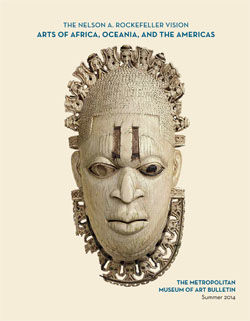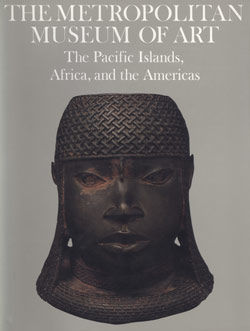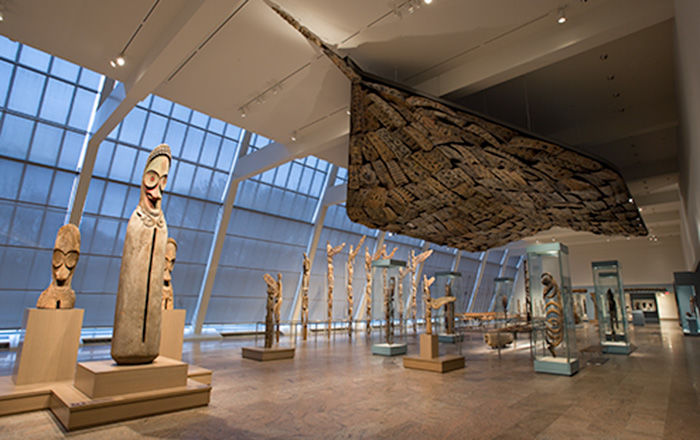Mask: Female Figure (Karan-wemba)
Not on view
Throughout the savanna region of West Africa, commemorative funerals pay tribute to the memory of deceased elders with performances of music, dance, and masks. Among the Mossi of Burkina Faso, a wooden face mask surmounted by a female figure appears at the funerals of revered women. The mask honors a woman whose great age, wisdom, and experience elevated her to the rank of a living ancestress, an ideal intermediary between the living and the spirits of the family's ancestors. In this work the artist has depicted such a woman at the height of her physical beauty, her youthful body adorned with the scarification patterns traditionally applied after the birth of her first child. The crescent-shaped coiffure, metal armlets, and pierced ears (which once held metal or beaded earrings) further enhance the beauty of the figure and reflect Mossi ideals of personal embellishment.
The stylized oval face mask, with its central vertical ridge, indicates an origin in the Yatenga region. Mossi masks from this area resemble the masking styles of the Dogon of Mali and reflect their shared history. Five centuries ago, when the Mossi states were founded, some Dogon living in this area were assimilated into Mossi society, while others fled to the present home of the Dogon around the Bandiagara cliffs.
Due to rights restrictions, this image cannot be enlarged, viewed at full screen, or downloaded.
This artwork is meant to be viewed from right to left. Scroll left to view more.





